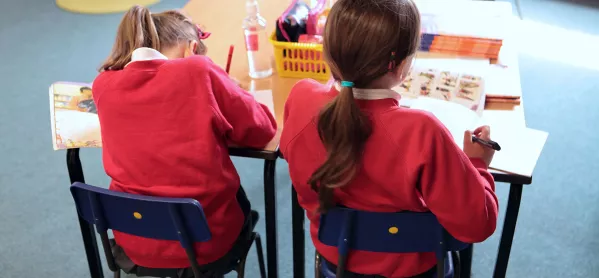Speech and language specialists are calling for the new prime minister to pledge to improve services for pupils with communication needs.
More than 1.3 million children have speech, language and communication (SLCN) needs and I CAN, the children’s communication charity, and the Royal College of Speech and Language Therapists (RCSLT) say they are still not getting the support they deserve, a year after an influential report was published.
Insight: Five statistics that reveal state of SEND education
Quick read: One in five pupils starts school unable to speak well
Watch: This viral video shows how parents can boost pupils’ language skills
I CAN and RCSLT want the new prime minister to pledge to:
- Create a fully funded, long-term strategy for children with SLCN.
- Make sure that services for children with SLCN are jointly commissioned by health, social care, youth justice and education.
- Provide sufficient funding for speech and language therapy so that no child or young person is left behind.
“Far too many children and young people with speech, language and communication needs are not getting the input they deserve,” Kamini Gadhok, chief executive of the RCSLT said.
“This has a profound effect on their ability to access the curriculum, to form relationships, to develop healthy self-esteem and ultimately get on in life.”
The call comes as the government responded to the organisations’ one-year update on the progress being made on delivering the 47 recommendations in the Bercow: Ten Years On report, which looked at how to improve services for children with SLCN.
This report, published in March, revealed what work was still needed, including support for SLCN beyond early years, professional development of teachers and teaching assistants in SLCN and incentivising schools to prioritise SLCN.
Now in a joint response to this first anniversary update, the Department for Education, Department of Health and Social Care, and the Ministry of Justice have reaffirmed their commitment to supporting children and young people with SLCN, saying “there is a substantial amount of work going on” but that they recognise there is “still more to do”.
The government has committed to halving the “word gap” for children before they start school. Currently, 28 per cent of children finish Reception year without the expected language and communication skills.
Bob Reitemeier, chief executive of I CAN, said: “In recent years we have seen huge strides forward in provision for children’s early language.
“However, government recognises there is more to do. It can’t be right that many children and young people with speech, language and communication needs are still having their needs missed.”
The call comes after a report by the children’s commissioner for England published last month found that there was a “postcode lottery of care” for pupils with communication problems.
A Department for Education spokesperson said: “Every parent wants to give their child the best start in life but not everyone has family support at hand and there is no manual telling us how to do everything right.
“That is why just last week we announced the launch of our home learning environment campaign Hungry Little Minds which is a society-wide drive with new nursery places, support from business and steps to make learning easier in the home - to improve early learning across the country, tackling the issue of childhood literacy and communication in the early years. This is backed by 1,800 new school-based nursery places, to be created in disadvantaged areas so more children can access high-quality early education, backed by a £22 million investment.
“In addition to this, we have announced a £6.5 million investment to support 27 councils to help children with early communications difficulties. This will provide better support to families in some of the most deprived areas of the country with hints and tips to propel their child’s learning so they can go on to reach their full potential, whatever their background.”




